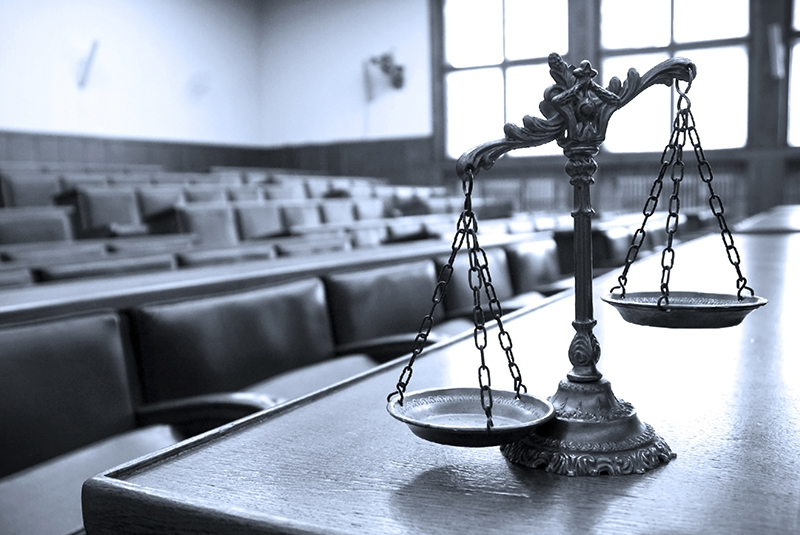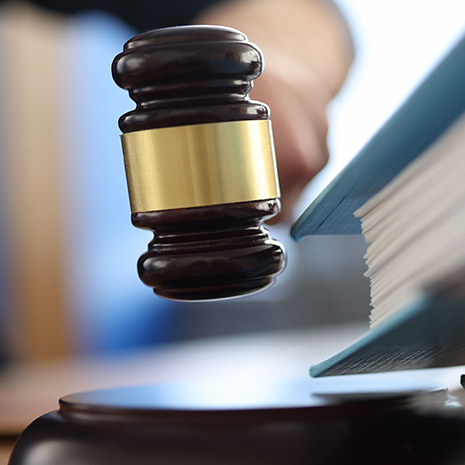Top Federal Appeal Lawyers: Expert Legal Guidance for Your Federal Appeal
Top Federal Appeal Lawyers: Expert Legal Guidance for Your Federal Appeal
Blog Article
Demystifying the Refine of Federal Appeals: What You Need to Know
Navigating the detailed world of government charms can typically appear like traversing uncharted waters for those not familiar with the process. Comprehending the nuances of appellate court jurisdiction, the ins and outs of filing a notice of charm, providing an engaging brief, and making a persuasive oral debate are important parts that can significantly impact the result of an instance. By unraveling the layers of complexity bordering federal charms, individuals can acquire a more clear understanding right into the devices that control this critical stage of the lawful system.
Recognizing Federal Appeals Refine
Exploring the detailed realm of the government appeals process introduces a organized and systematic trip via the judicial system - federal firearm appeals. Federal charms serve as a critical system for examining choices made by lower courts. Comprehending this procedure is crucial for any person included in lawful process at the federal degree
The procedure commonly begins with a celebration dissatisfied with a lower court's ruling filing a notification of allure. This activates a review by a higher court, where a panel of judges evaluates the lawful disagreements presented by both events. Briefs outlining the legal reasoning behind each event's setting are sent, and dental arguments might be heard to clarify complicated problems.
The appellate court's choice is based on a detailed examination of the lower court's process and the arguments presented. When the appellate court gets to a decision, it can attest, reverse, remand, or customize the reduced court's judgment, providing quality and finality to the legal conflict.
Appellate Court Jurisdiction Discussed

Appellate courts have jurisdiction over certain sorts of instances, commonly those entailing legal errors, procedural issues, or inquiries of legislation instead of accurate disagreements. The jurisdiction of appellate courts is normally described in laws and legislations that govern the court system. Recognizing appellate court jurisdiction is vital for events associated with the appeals process as it figures out whether an instance is qualified for testimonial and the extent to which the appellate court can intervene in the reduced court's decision.
Declaring a Notice of Allure
The first action in beginning the federal charms process includes filing a Notification of Appeal with the appropriate appellate court. federal tax fraud appeal lawyers. This crucial record officially alerts the court and the other celebrations associated with the instance that the appealing party intends to seek a testimonial of the reduced court's choice. Submitting a Notification of Appeal is a strict procedural demand that sets the appellate process moving
When preparing the Notification of Charm, it is essential to make certain compliance with the details regulations and guidelines of the relevant appellate court. The file should typically consist of details such as the situation name, the reduced court's name, the date of the judgment being appealed, and a concise declaration showing the grounds for the allure.
When submitting a Notice of Charm,Timeliness is of the essence. Missing the deadline for submitting this paper can lead to the charm being rejected, emphasizing the relevance of accurate and timely initiation of the appeals procedure. It is suggested to seek lawful guidance to navigate the intricacies of submitting a Notice of Appeal efficiently.
Briefing and Oral Disagreement
In the appellate procedure, presenting created briefs and taking part in dental disagreements play essential duties in supporting for the appealing event's position before the appellate court. Briefs are extensive lawful documents that outline the events' disagreements, lawful authorities, and evaluation sustaining their placements. These created entries offer the court with a thorough understanding of the facts of the case, the pertinent law, and why the appealing celebration believes the lower court's decision ought to be reversed.
Complying with the entry and review of the briefs, oral debates supply the celebrations a chance to more clarify their positions, resolve any type of inquiries the appellate courts might have, and highlight key points from their composed briefs. Dental disagreements are a chance for the lawyers to persuade the judges with spoken advocacy and actions to inquiries from the bench.

Obtaining the Appellate Court Decision

Final Thought
Recognizing the appellate court territory, submitting a notification of allure, preparing briefs, and providing oral arguments are all essential parts of this process. Eventually, getting the appellate court decision can provide clearness and resolution to lawful disagreements.
As we proceed from recognizing the government allures process to dissecting the details of appellate court jurisdiction, a basic element comes to light regarding the authority and restrictions of these higher courts in the lawful landscape. Appellate court jurisdiction refers to the range of cases that a particular appellate court has the power to assess and choose upon. Unlike trial courts that listen to cases for the first time, appellate courts are restricted to evaluating choices made by lower courts. Understanding appellate court jurisdiction is vital for events included in the appeals process as it establishes whether a situation is qualified for review and the level to which the appellate court can intervene in the lower court's decision.
Whether the appellate court attests, reverses, or remands the reduced court's choice, recognizing the ramifications of the ruling is important for all events involved in the appellate procedure.
Report this page